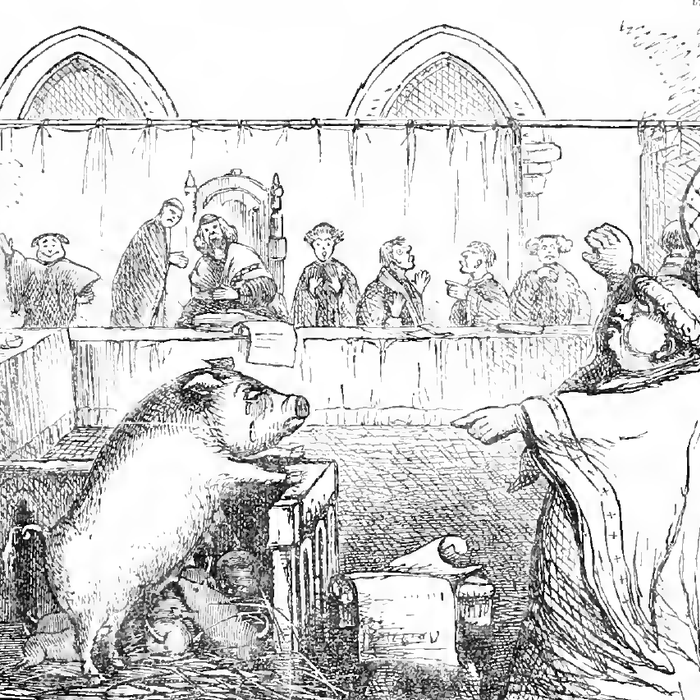Crimes against Reproduction
Domesticating Life in the Animal Trials
DOI:
https://doi.org/10.52537/humanimalia.11727Keywords:
Law, Reproduction, Domestication, Anthropocentrism, Animal trials, Witch trialsAbstract
Secular animal trials were coincident with witch trials across Europe from the 1200s–1700s, peaking between the fifteenth and seventeenth centuries. The trials’ similarity extends beyond simultaneity. Both forms of trials were preoccupied with what we call reproductive crimes: criminalized perceived deviance from reproductive norms that codified into an order facilitating the rise of capitalist modernity. In this paper we discuss secondary sources concerning the animal trials alongside feminist theories of reproduction, domestication, and anthropocentrism to suggest that animal trials, like witch trials, are sites of struggle over the domestication of reproduction. The animal trials are specifically a site of negotiation concerning the nonhuman world’s position within an ascendant domesticated reproductive order. In the trials, the domestication of reproduction thus entangles with the anthropocentric domestication of the nonhuman world. The empirical base of our analysis focuses on three arenas in which animals were incorporated into juridical structures as criminal subjects: bestiality, infanticide, and witch trials. The first two involved animals being tried directly in French courts, while the latter involved animals being implicated in British trials as witches’ familiars. Together, these appearances of animals provide an introductory window into how human–animal relations were 1) shaped by the reproductive anxieties and politics of the late Middle Ages and early modern period in these countries, and 2) marshalled towards the assembly of domesticated reproductive norms whose legacies persist into current frameworks of gendered and interspecies relationality. This imposition of a gendered order onto animality evidences the extent to which gendered systems of reproduction govern not only humans but also a wider terrain of life.
Downloads

Published
Issue
Section
License
Copyright (c) 2023 Jesse Arseneault, Rosemary-Claire Collard (Author)

This work is licensed under a Creative Commons Attribution-NonCommercial 4.0 International License.









